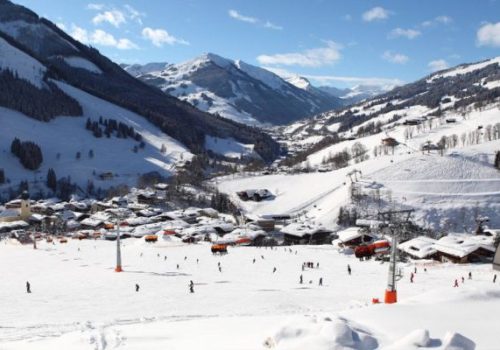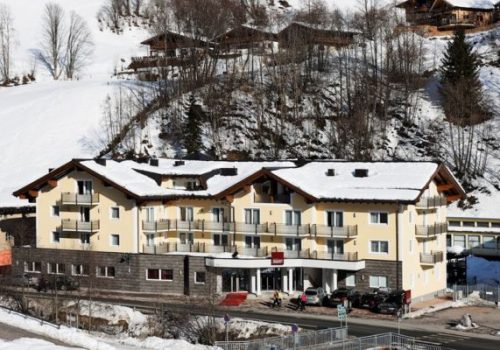Live and work in Vienna
Latest jobs in Austria and Vienna
- Chef & Cookery
- Austria
- Ski & Winter Resort
- Austria
Vienna, Austria’s majestic capital, is a city of timeless elegance, rich history, and vibrant modernity. Consistently ranked as one of the world’s most livable cities, Vienna offers a perfect blend of cultural sophistication, economic stability, and unparalleled quality of life. For expats, Vienna is not only a cultural hub but also a land of opportunity, with a thriving job market, excellent healthcare, and a welcoming community. This comprehensive guide delves into what it’s like to live and work in Vienna, exploring job opportunities, salaries, lifestyle, and practical tips.
Working in Vienna
Working Conditions in Vienna
Vienna is known for its structured and employee-friendly work environment, ensuring a balanced lifestyle. The standard workweek is 40 hours, though many companies offer shorter hours, typically 37 or 38 hours per week. Workdays generally start at 8 or 9 am and end by 5 or 6 pm, with a one-hour lunch break in the middle of the day. Overtime is uncommon, and work-life balance is a priority for most employers.
Employees in Vienna benefit from 25 days of annual leave, plus 13 public holidays. Additionally, Austrian labor laws mandate a 13th and 14th salary, distributed in June and November as vacation and Christmas bonuses. These extras significantly boost annual income and support Austria’s reputation as one of the most employee-friendly countries in Europe.
The working culture in Vienna emphasizes efficiency, punctuality, and professionalism. Meetings are well-organized, and deadlines are respected, but the atmosphere remains respectful and collaborative. Many workplaces have adopted a flat hierarchy, promoting open communication and teamwork. While English is commonly used in international companies, German proficiency is often a requirement for local roles.
Job Opportunities in Vienna
As Austria’s economic powerhouse, Vienna is home to a diverse range of industries. The city’s strategic location in Central Europe, combined with its political stability and high living standards, makes it an attractive hub for international businesses and organizations.
The finance and banking sector is particularly prominent, with many multinational corporations and investment firms headquartered in the city. International organizations, including the United Nations and OPEC, also provide a wealth of job opportunities for diplomats, analysts, and administrative professionals.
Vienna’s technology and innovation scene is growing rapidly, offering roles in IT, software development, and data analysis. The city has also become a hotspot for start-ups, particularly in the fields of artificial intelligence and renewable energy.
Tourism and hospitality remain key sectors, driven by Vienna’s global reputation as a cultural and historical destination. Expats can find opportunities in hotels, restaurants, and event planning. Teaching is another popular career path, with international schools, universities, and language academies frequently hiring English-speaking professionals.
Networking is critical in Vienna’s job market, and many expats find success through platforms like LinkedIn, professional events, or local networking groups such as AmCham Austria or the Vienna International Expat Center.
Salaries in Vienna
Vienna offers competitive salaries, particularly for skilled professionals. The average monthly gross salary is around €3,800, though this varies significantly by industry and experience. For example:
- IT professionals and engineers often earn between €4,000 and €6,500 per month.
- Finance and consulting roles pay similarly, with senior positions exceeding €8,000 monthly.
- Teaching and academic roles typically offer salaries ranging from €2,500 to €4,000, depending on the institution.
While salaries in Vienna are slightly lower than in Switzerland or Germany, the city’s lower cost of living in areas like healthcare and public transport helps maintain a high standard of living.
Income Tax in Vienna
Austria’s progressive tax system means higher earners pay more, with rates ranging from 20% to 55%. Most employees fall within the 30-42% bracket. Social security contributions, covering healthcare, pensions, and unemployment benefits, are automatically deducted from salaries.
Expats working in Vienna must register with the Austrian Tax Authority and may need to file annual tax returns, particularly if they have income from abroad. Austria has double taxation treaties with many countries, ensuring expats are not taxed on the same income in both countries.
While taxes may seem high, they fund Vienna’s exceptional public services, including universal healthcare, free education, and well-maintained public infrastructure.
Working Culture in Vienna
Vienna’s working culture combines efficiency with respect for work-life balance. Punctuality is highly valued, and arriving late to meetings or appointments is considered unprofessional. Colleagues often enjoy formal but friendly relationships, and building trust through reliability and professionalism is key.
Lunch breaks are important in Vienna, with many employees stepping out for a proper meal rather than eating at their desks. The city’s many cafés and restaurants offer excellent options for mid-day dining. Flexibility is increasingly common, especially in tech and creative industries, where remote work or flexible hours are widely adopted.
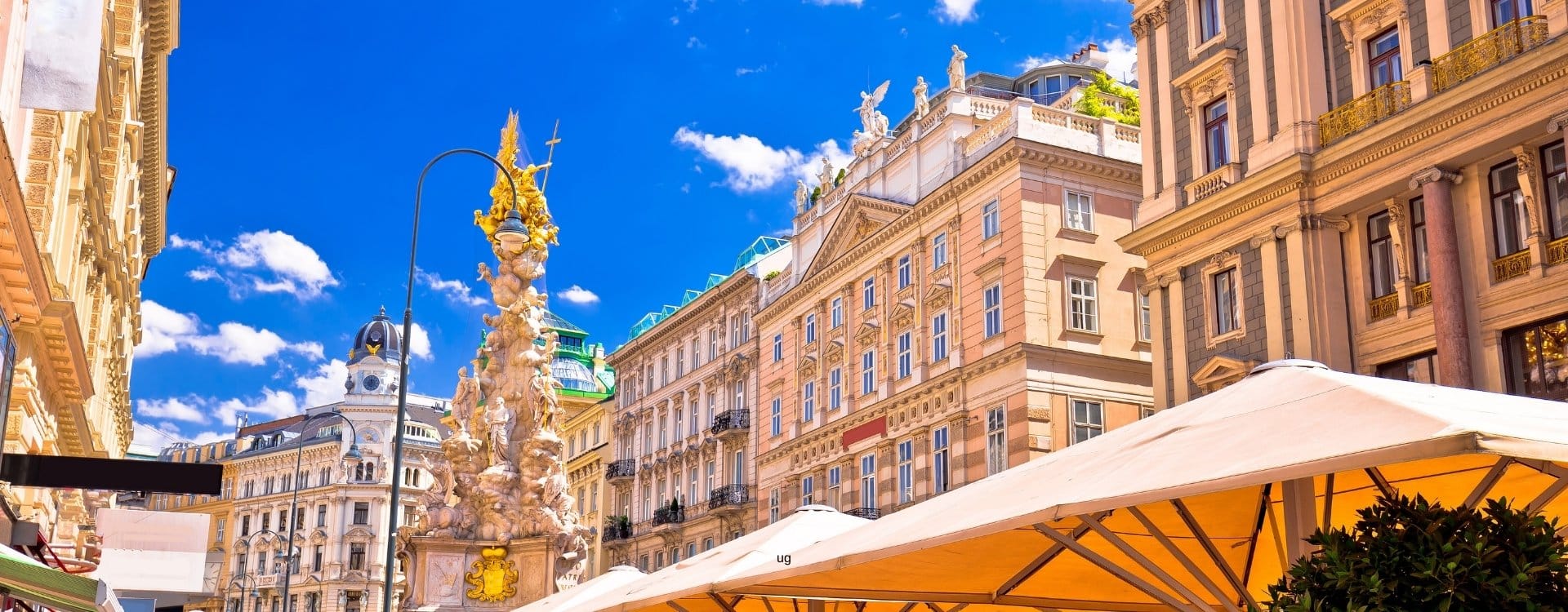
Living in Vienna
Benefits of Living and Working in Vienna
Living in Vienna offers a rare combination of rich cultural heritage, modern amenities, and exceptional quality of life. The city’s efficient public services, clean environment, and safe neighborhoods make it an ideal place for families, young professionals, and retirees alike. Vienna’s universal healthcare system ensures that all residents have access to affordable and high-quality medical services, while its public education system is among the best in Europe.
Vienna’s location in the heart of Europe makes it easy to explore neighboring countries like Germany, Hungary, and Italy. The city itself offers a wealth of cultural and recreational activities, from world-class museums and opera houses to sprawling parks and hiking trails.
Accommodation in Vienna
Housing in Vienna is more affordable than in many other European capitals. A one-bedroom apartment in the city center typically costs between €900 and €1,400 per month, while similar apartments in suburban areas like Döbling or Liesing range from €700 to €1,000. Shared accommodations or smaller apartments can reduce costs further.
Utilities, including electricity, heating, and water, add about €150 to €250 monthly, depending on the season and apartment size. Expats often use platforms like Willhaben or work with real estate agencies to find suitable housing. It’s common for landlords to request a deposit equivalent to two or three months’ rent.
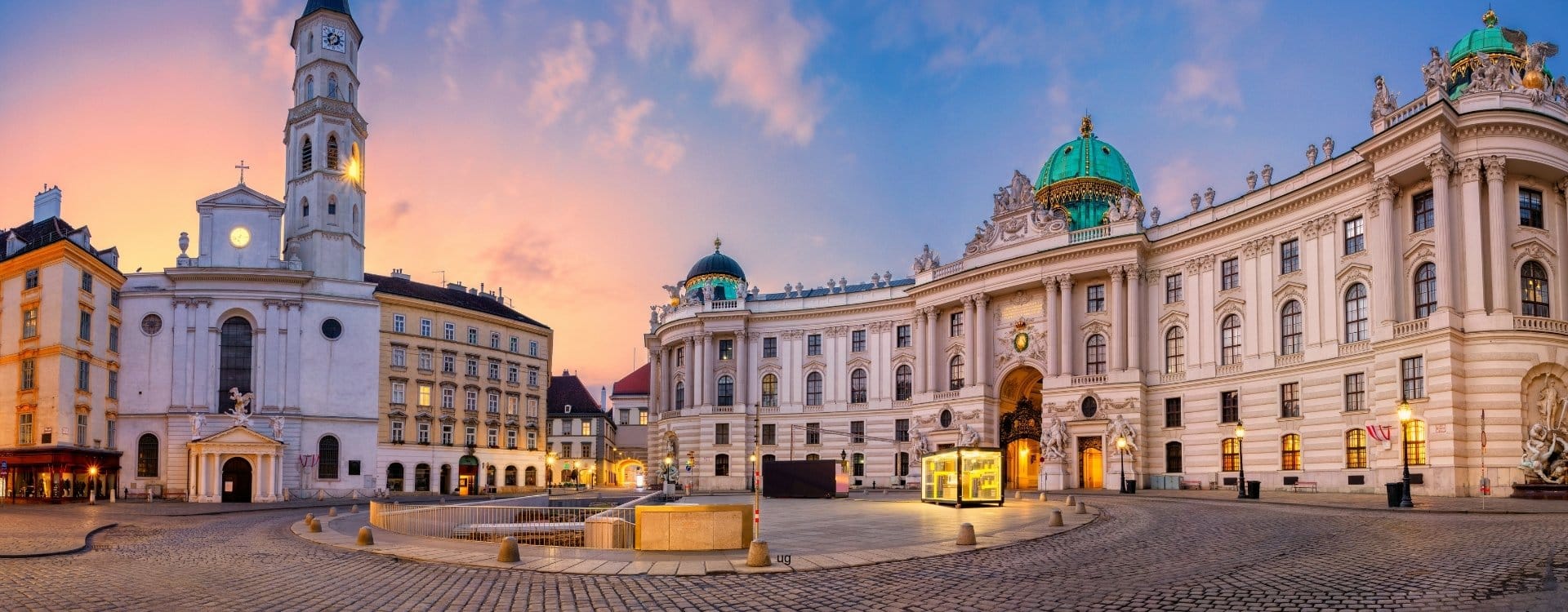
Cost of Living in Vienna
The cost of living in Vienna is moderate compared to other Western European capitals like London or Paris. A single person can expect to spend between €1,500 and €2,200 per month, depending on lifestyle. Here’s a breakdown:
- Groceries: Monthly grocery bills range from €250 to €400, with affordable options available at supermarkets like Spar, Hofer, and Billa.
- Dining Out: A meal at a mid-range restaurant costs €15 to €25, while coffee and a pastry at a traditional café like Café Central or Demel costs around €6 to €10.
- Public Transport: Vienna’s public transport system is efficient and affordable, with a monthly pass costing just €51, granting unlimited access to buses, trams, and the metro.
Where to Live in Vienna
Vienna’s neighborhoods, known as districts or Bezirke, each have their own unique character. Innere Stadt (1st District) is the historical and cultural heart of Vienna, perfect for those who want to live amidst iconic landmarks and upscale amenities. However, it is also the most expensive district.
For a more residential feel, Döbling (19th District) and Hietzing (13th District) are ideal, offering leafy streets, excellent schools, and proximity to parks like Schönbrunn Gardens. Young professionals often choose Neubau (7th District) or Mariahilf (6th District) for their vibrant cultural scenes, trendy cafés, and shopping options.
Suburban areas like Floridsdorf (21st District) offer affordable housing and a quieter lifestyle, while still being well-connected to the city center.
Public Transport in Vienna
Vienna’s public transport system is one of the best in Europe, featuring an extensive network of buses, trams, and the metro (U-Bahn). A monthly pass costs €51, offering unlimited travel within the city. Trains and buses connect Vienna to other Austrian cities and neighboring countries, making weekend getaways easy and affordable.
Cycling is also popular in Vienna, with dedicated bike lanes and rental services like Citybike Wien. For those who drive, traffic is manageable compared to other capitals, though parking can be expensive in central areas.
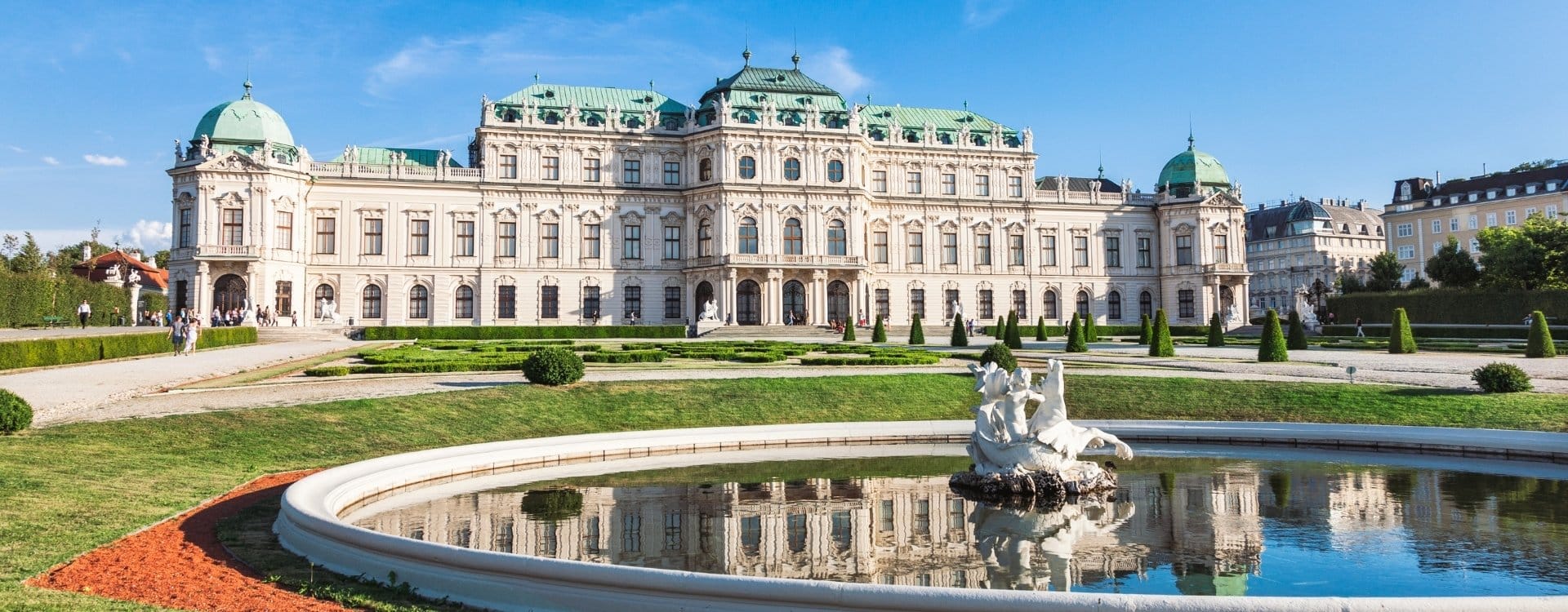
Eating in Vienna: Restaurants and Food Costs
Vienna’s culinary scene is a delightful mix of traditional Austrian cuisine and international flavors. Classic dishes like Wiener Schnitzel, Tafelspitz, and Sachertorte are staples in Viennese restaurants. Dining out is relatively affordable, with casual meals costing around €12 to €20 and fine dining options starting at €50 per person.
Local markets, such as the Naschmarkt, are perfect for buying fresh produce, meats, and spices, while supermarkets like Spar and Hofer cater to everyday grocery needs. Coffee culture is deeply ingrained in Viennese life, with countless cafés offering a place to relax and enjoy the city’s rich traditions.
Vienna’s Nightlife
Vienna’s nightlife caters to all tastes, from elegant cocktail bars and jazz clubs to lively nightclubs. Popular nightlife areas include Schwedenplatz, Neubau, and Praterstern, where locals and expats gather to socialize. The city also hosts a range of cultural events, including opera performances, classical music concerts, and theater productions.
During the summer months, outdoor venues along the Danube Canal and the Donauinsel come alive with bars, food stalls, and live music. For a more relaxed evening, Vienna’s wine taverns, known as Heurigen, offer an authentic Austrian experience with local wines and traditional dishes.
Weather in Vienna
Vienna experiences a continental climate, with warm summers and cold winters. Summer temperatures range from 25°C to 30°C (77°F to 86°F), while winters can drop to -2°C to -5°C (28°F to 23°F), often bringing snow. Spring and autumn are mild, making them ideal seasons for outdoor activities like hiking in the nearby Vienna Woods.
What Not to Miss in Vienna
Vienna is a city steeped in history and culture. Iconic landmarks like the Schönbrunn Palace, St. Stephen’s Cathedral, and the Belvedere Palace showcase the city’s imperial legacy. Music lovers can attend performances at the Vienna State Opera or explore the Mozarthaus.
For nature enthusiasts, the Vienna Woods and the Danube Island offer a tranquil escape from urban life. Seasonal events, such as the Vienna Christmas Markets and the New Year’s Concert, add to the city’s charm.

